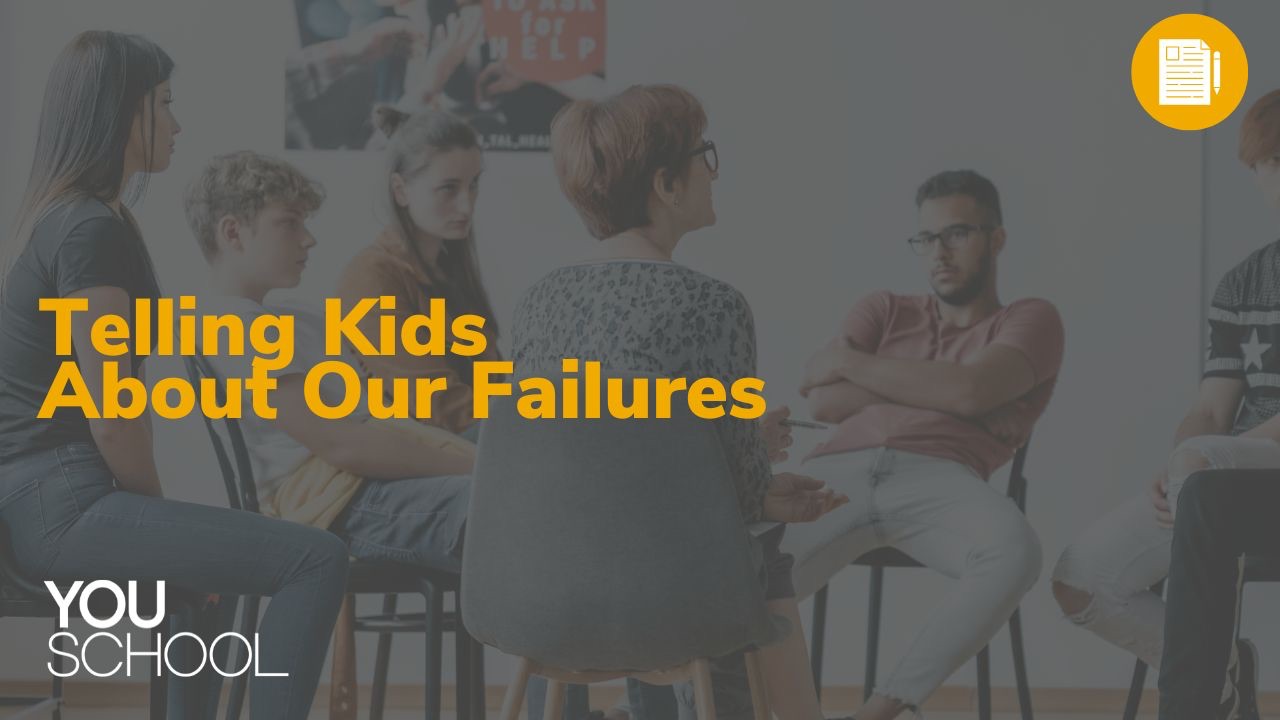Telling Kids About Our Failures

“Whoever tells the best story wins.” - John Quincy Adams
Anyone who’s been around a teenager for a significant amount of time understands how challenging it can be to connect with them, especially if you want to hear their thoughts, questions, or ambitions. Sometimes it almost feels like a sport for them to be cagey or disengaged. We also know how vital it is to connect with them—not only for them but also for us.
A team of researchers from the University of California, Santa Barbara, concluded that “Studies on thousands of students show that learners who are better socially connected to their teachers and classmates are significantly more engaged and achieve better than their less well-connected peers.”
Parents and educators want to connect—it’s the lifeblood of maintaining our commitment to their growth and development. How can it work, then, and what can we do?
It all comes down to the simple power of storytelling, and everyone can do it.
Many students are really disengaged and avoid interaction at any cost. Some students respond to adults who are funny and charismatic. Other students respond better to adults who challenge them with really high expectations. But all students respond to a well-told story.
Unfortunately, not enough adults share stories with kids. Whether to them it feels inappropriate or irrelevant, it’s all too common to overlook how powerful an opportunity stories provide. Let this be your permission: start sharing your stories with kids!
Not only is storytelling important to establish and cultivate a connection and a relationship with kids, but our stories also serve as opportunities for them to learn about life through our experiences. Stories, in many ways, are like mirrors for other people to see themselves and the world. As they head toward adulthood, they need to see what it looks like to make the transition. The more data they have, the better they’ll do.
One storytelling category seems to be more effective than all the others: the stories about our failures. Adults who share confessional stories about the times they blew it will be repaid with more trust and a tighter bond. There are many types of failures, too, for you to share:
- Moral failures: when you violated your own ethics and suffered the consequences.
- Relationship failures: when you hurt someone you cared about.
- Professional or Academic failures: when you failed to engage, inquire, or prepare.
- Commitment failures: when you failed to meet the expectations required for your responsibilities.
- Naive failures: when you got caught doing something you didn’t realize was wrong, illegal, or unethical.
- Performance failures: when you blew it in a public way, perhaps in a sporting event, presentation, or the arts.
- Habits failures: when the habits you set, whether intentional or not, led you down a path that restricted you from opportunities.
Everyone experiences failure, so undoubtedly, you have a lot of material to pull from. By sharing your failure stories, you’ll build authentic trust and rapport with your kids or students, give them a chance to learn from your experiences, and normalize failure's importance to the learning and growth process.
